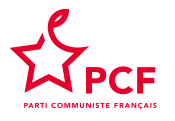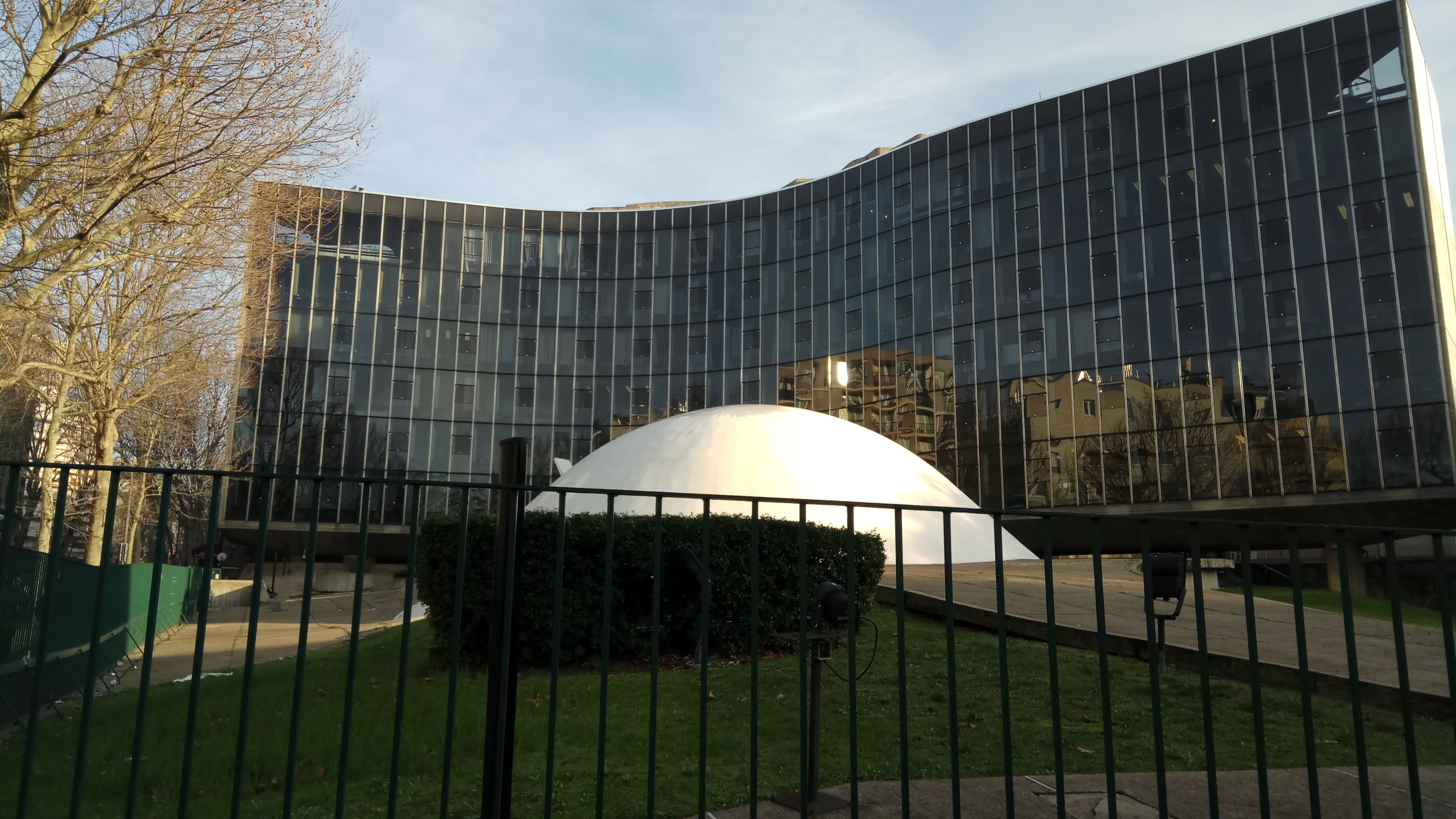More languages
More actions
French Communist Party Parti communiste français | |
|---|---|
 | |
| Abbreviation | PCF |
| Secretary | Fabien Roussel |
| Founders | Ludovic-Oscar Frossard Fernand Loriot Boris Souvarine Marcel Cachin Hồ Chí Minh |
| Founded | 1920 December 30 |
| Split from | SFIO |
| Headquarters | 2, place du Colonel Fabien, Paris, France |
| Newspaper | L'Humanité |
| Student wing | Union of Communist Students |
| Youth wing | Mouvement Jeunes Communistes de France |
| Political orientation | Communism Eurocommunism Democratic socialism |
| European affiliation | Party of the European Left |
| International affiliation | IMCWP Cominform (1947–1956) Comintern (1920—1943) |
| Anthem | The Internationale |
| National Assembly | 8 / 577
|
| Senate | 14 / 348
|
| European Parliament | 0 / 74
|
| Presidency of Regional Councils | 0 / 17
|
| Presidency of Departmental Councils | 0 / 95
|
| Website | |
| https://www.pcf.fr | |
| Part of a series on |
| Communist parties |
|---|
The French Communist Party (PCF) is a communist party in France that has turned to revisionism. It was founded in 1920 by members of the French Section of the Workers' International (SFIO).
In 2012, the PCF had 138,000 members, making it the third largest party in France in terms of membership after The Republicans (LR) and the Socialist Party (PS). It has participated in three governments: the provisional government of the Liberation (1944–1947), at the beginning of François Mitterrand's presidency (1981–1984), and in the Plural Left cabinet led by Lionel Jospin (1997–2002).
History

In 1920, during the Tours Congress of the socialist French Section of the Workers' International, a resolution was adopted by the majority of the SFIO to join the Comintern and become a truly revolutionary party. However, the opportunist leadership of the party wished to remain in the equally opportunist Second International, which led to a split in which the majority of the party left and formed the French Communist Party.[1]
Following its founding, the PCF spent the 1920s growing as a party, helped by the advice of the Comintern and Vladimir Lenin, and successfully managed to strengthen its ties to the masses whilst purging its social democratic and anarchosyndicalist factions. Pierre Semard became general secretary in 1924 and for the rest of the 1920s the party focussed on building a united front for socialism and opposing French imperialist actions such as anti-Soviet aggression and colonialist wars in Morocco and Syria.[2]
Maurice Thorez became general secretary in 1930 and in the 1930s with the threat of fascism and war looming, the PCF formed a united front with the SFIO and other socialist parties to organize the Popular Front. In the 1936 elections the PCF received 1.5 million votes and the Popular Front came to power from 1936 to 1938, though the PCF itself did not participate in this government. The PCF was banned by the French government on September 26, 1939 and went underground, but when France was occupied by Nazi Germany during the Second World War, the PCF played a leading role in the resistance, losing 75,000 members throughout the war.[2]
After the war, the PCF was one of France's largest and most popular parties due to its role in the resistance and for that period received over 20% of the vote in elections. The PCF was included in government from 1944 to 1947, with Thorez as Deputy Prime Minister, but in May 1947 all communists were removed from office due to pressure from the United States. As part of the government the PCF succeeded in passing some minor reforms, however, this small win contributed to giving the party the false belief that socialism was possible to achieve via bourgeois democracy, signalling the PCF's full descent into revisionism.[2]
When the war of national liberation began in Vietnam in 1945 the PCF adopted a chauvinist position of wanting the negotiate a peaceful settlement with the Viet Minh which would see Vietnam remaining as part of a "French Union". The PCF only shifted to a more anti-imperialist position once they were kicked out of government and even then it was only because they saw it as a "useless fight". This support for imperialism continued into Algeria's independence struggle in 1954, a struggle which the PCF considered to be terrorism and against the PCF's policy of supporting the French Republic.[3]
References
- ↑ The Great Soviet Encyclopedia: 'French Socialist Party' (1979).
- ↑ 2.0 2.1 2.2 R. S. Varfolomeeva (1979). The Great Soviet Encyclopedia: 'French Communist Party'.
- ↑ Selim Nadi (2016-10-29). "The Communists and the Colonized" Jacobin.
